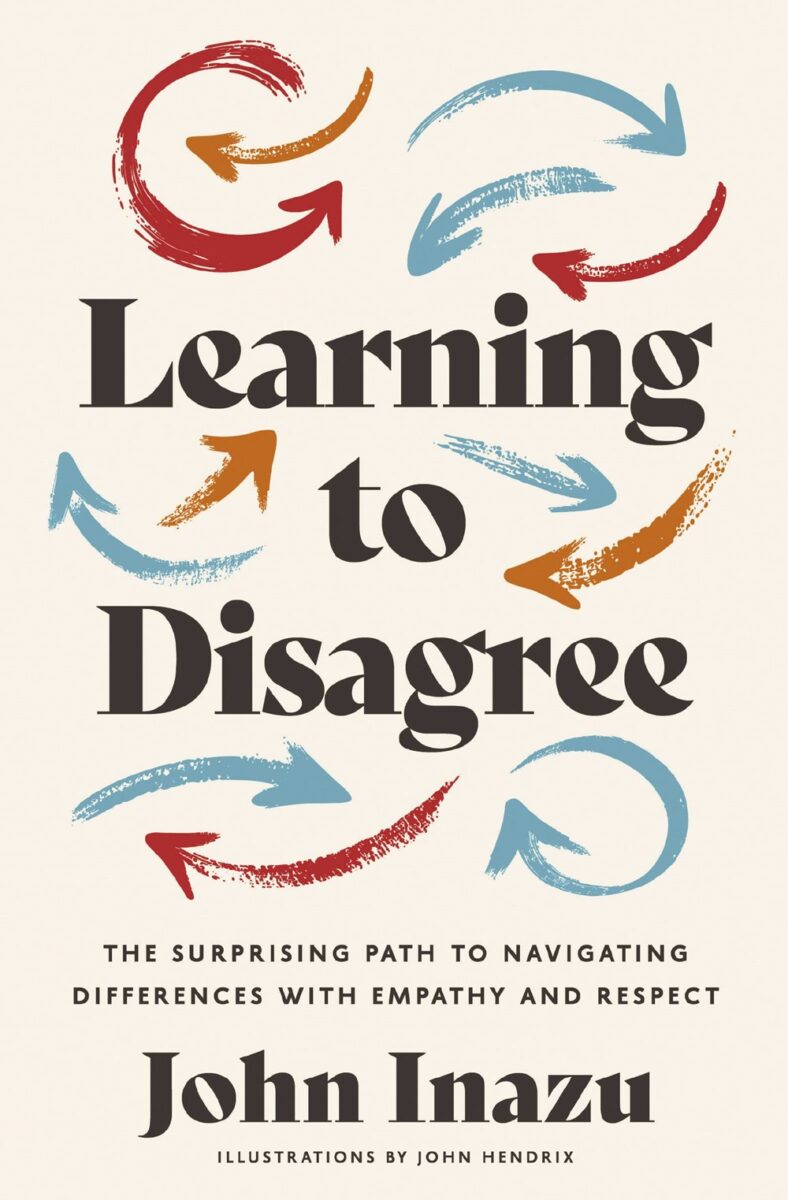The Restorative Power of Connection: Dansby Swanson and John Inazu
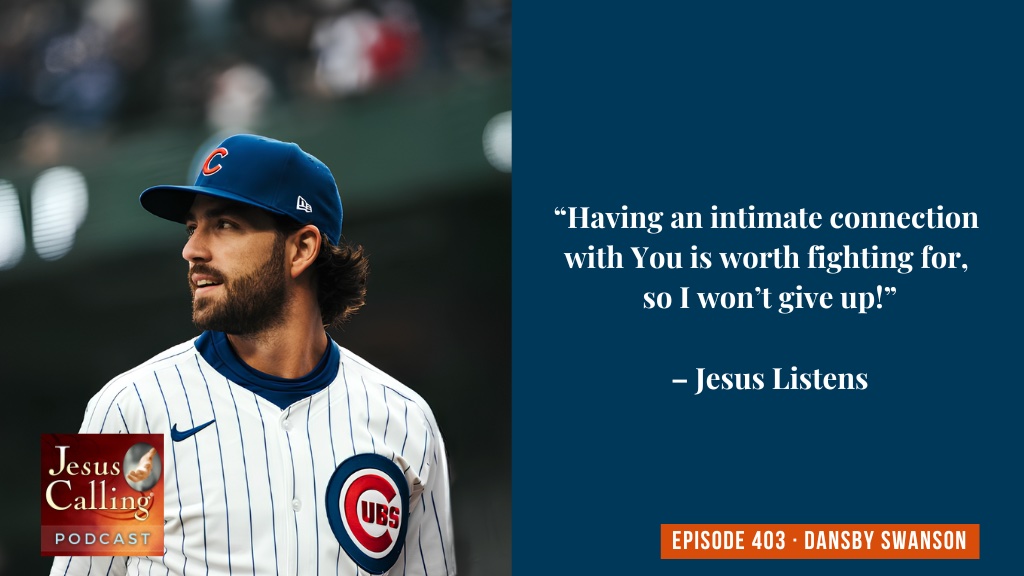
Dansby Swanson: God created us to live in community with one another, because there’s such a level of His love and connection that comes with that.
The Restorative Power of Connection: Dansby Swanson and John Inazu – Episode #403
Narrator: Welcome to the Jesus Calling Podcast. In all the moments of our lives, whether we’re dealing with depression or anxiety, or navigating the responsibilities of taking care of other people, or simply trying to make our days have more depth and meaning, our connection to others is key to our well-being. Through prayer, intentionality, and consideration, we can strengthen that cord that ties us to others and build relationships that become a lifeline when things get hard.
This week, we’re joined by Dansby Swanson, a major league baseball player for the Chicago Cubs. Dansby shares the ups and downs of being a major league baseball player, including the stress and anxiety that comes with the job—and how his connections to his family, caring coaches, friends, and to God, made all the difference in getting a handle on his depression. Later in the episode, we’ll hear from John Inazu, a professor of law and religion, who discusses how we can foster healthier conversations around challenging topics, creating understanding and connection even with those who disagree with us.
Let’s begin with Dansby Swanson.
Dansby Swanson: Hey, everybody, my name is Dansby Swanson. I am a major league baseball player for the Chicago Cubs.
A Boy’s Dreams of Baseball
As a young kid, I dreamed of doing what I’m currently doing, I never really had anything else that interested me other than playing major league baseball. I grew up in Atlanta, Georgia. I grew up with a phenomenal family. I grew up in church, grew up playing baseball and basketball. Sports have always kind of been my life.
Both my parents were great athletes. My mom played tennis and basketball in high school and college. And then my dad played baseball in both high school and college. I wasn’t, like, the best high school baseball player. I was always a little bit undersized. What set me apart in terms of [being] a player was because I had to learn the game at a higher level than other people in order to compete and be good, just because the physical aspect wasn’t there.
I would play travel ball and I’d put a lot of energy into it, but when it was basketball season from October into February, I was all basketball. And at times, that kind of left me a little bit behind just because I wasn’t doing as much baseball.
I actually didn’t have that great of a senior year on the field and I just talked to a bunch of different people about, “Should I go to college? Should I go the professional route?” And it was really just a God thing. I just felt very convicted in the decision that I needed to go to school. It was going to mature me as a player. It was going to mature me as a man. And it was kind of the foundation that I needed to be able to take that next step.
My coach at the time, his name’s James Beavers. He had called Georgia Tech, because that’s ultimately where I wanted to go. And they kind of just said in a nice way that I wasn’t good enough to play there, and that I needed to kind of look at other options.
So Coach Beavers, he called Coach Corbin, who’s at Vanderbilt—they basically came down and watched me play one game, and it was my first game out of high school basketball. I was very, very rusty, but they kind of saw something in me. They saw basically a young kid that really cared about his teammates and kind of just set myself apart in terms of knowledge of the game and how I interacted with other people. And so that’s kind of like what separated me and they said, “You know what? We believe that this kid can be something, because he’s got the right mental makeup. And we just think that with some physical maturity and some more experience in the game, that he can grow to be a great player.”
Early Challenges Playing College Ball
My freshman year was definitely challenging. We had a lot of really, really good players, and I started to make my mark as a dependable guy, as someone that was consistent and that cared about the group and started to get some opportunities to play. And the sixth game of the year I ended up breaking my foot.
I ended up getting surgery. I had a screw put in my foot, and then as I was making my way back from that, I had already had some shoulder problems in my left shoulder, non-throwing thankfully, and it just kept giving me grief, kept giving me grief, and just got to the point where it was not really able to perform.
In early May, I was coming off my foot surgery and finally got back healthy. And we’re taking ground balls—and this never happens because we’re on a turf field—but the ball bounced pretty funny and split my finger open. So I was bleeding and couldn’t really get to stop. And I’m like, Well, I can’t throw if my fingers kind of split and it’s bleeding, I can’t play. And so they end up deactivating me.
And I remember just going to lunch after the game with my parents and said, “I think that I just need to go ahead and get my shoulder surgery done, because it just kind of seems like a sign to me.” So I went and got surgery done, played maybe in twelve or thirteen games my freshman year and ended up basically rehabbing all summer from both my foot and shoulder surgeries and just kind of getting to a point where I felt like I was going to be a successful baseball player, and it was definitely challenging.
Expectations, Stress, and Anxiety in the Big Leagues
I got drafted. I was actually the first pick in the 2015 draft. There’s a lot of expectations thrown on you at an early age. You know, I was twenty-one, a lot of expectations that I was going to be the next coming of whatever. And that first year was very interesting navigating through that.
And then I ended up getting traded in December of 2015, back home to Atlanta. And when it first happened, I mean, most people just think, Oh, man, this has got to be the greatest thing that’s ever happened to you. It’s a very odd feeling because part of you feels like, If I’m being traded, that means I’m not good enough. And I kind of battled through the whole, Am I not good enough? Why don’t they want me? I’m looking at it from a very negative perspective.
Growing up, I definitely dealt with different forms of stress, whether it was performance or in school or when you’ve got a lot of projects or tests coming up, like there’s a level of stress that comes with that. And even in college a little bit, just kind of growing up on your own and starting to understand time management and performing in front of 30,000 or 40,000 people when everything’s at stake.
I never really knew what anxiety and some of those things were like, I never really experienced enough of that or really knew that that’s what it was. I just got humbled, you know? Humbled down to my knees.
I was very much depressed, I wasn’t sleeping, I really wasn’t eating. I was probably drinking more than I should have been. I just wasn’t doing the right things. And I remember I was losing weight. I didn’t look good. I would try to go to sleep, couldn’t go to sleep, I’d finally fall asleep well after midnight, and wake up after a couple hours.
I spent seven years there, six in the big leagues, one in the minor leagues, and had plenty of ups and downs, battled through a bunch of different depression and anxiety. I didn’t know what to cling on. I didn’t know how to talk to anybody about it. I felt like fear was what was holding me back, whether it was fear of failure or fear of disappointing others.
I think in this day and age, I mean, we’ve never been more connected but disassociated from one another, like, we’re connected through technology, but we’re not connected in person. And there’s such an energy that we get from people. And I think that that’s why God created us to live in community with one another, because there’s such a level of His love and connection that comes with that.
“God created us to live in community with one another, because there’s such a level of His love and connection that comes with that.” – Dansby Swanson
I do a lot of therapy and am very grateful that everything he does is based around Scripture and it’s based on Jesus being the center of the focus. So we do a lot of work just to kind of continue to stay centered on what matters. And that to me is probably the most important thing. God does a lot of things through people for me, and I’m just so grateful that I’m able to keep that perspective, to just trust in Him and His plan, and just be able to realize what He’s done for me along the way.
“God does a lot of things through people for me, and I’m just so grateful that I’m able to keep that perspective, to just trust in Him and His plan, and just be able to realize what He’s done for me along the way.” – Dansby Swanson
If You Want to Know Who You Are, Ask God
Our identity is supposed to be taken into what we do, as opposed to taking our identity from what we do. I think the only way to really discover who we are is to ask God. It’s to spend that quiet time, it’s to spend time in Scripture to start to understand who we are. And that way, when we’re secure in knowing that, we can take that into whatever room we walk into, as opposed to drawing that out of whatever room we walk into. Our identity is secure in Christ and what He did for us and no matter how great we are, we’re still never going to be perfect. Jesus is the one that lived a perfect life so that He could sacrifice Himself for our shortcomings.
“Our identity is secure in Christ and what He did for us and no matter how great we are, we’re still never going to be perfect. Jesus is the one that lived a perfect life so that He could sacrifice Himself for our shortcomings.” – Dansby Swanson
Prayer is a great way to stay present, and when we’re present and we’re in the moment, that’s when we really feel God’s peace and grace. And the more that we stay and understand where our feet are, then the better off we’ll be. Spending that time, whether it’s in the morning or at night, whether it’s a daily devotional like Jesus Calling or some type of scripture that you’re following, or any type of little devotional, it’s just a way to constantly recenter yourself into the right things.
Jesus Listens, May 23rd:
My strong Shepherd,
I come to You with all my weaknesses: spiritual, emotional, and physical. As I rest in the comfort of Your Presence, I remember that nothing is impossible with You—and I rejoice in You!
Whenever anxiety attempts to wedge its way into my thoughts, please remind me that You are my Shepherd. Since You are taking care of me, I don’t need to be afraid of anything! Rather than trying to maintain control over my life, I want to abandon myself to You. Even though this feels scary and precarious, I know that the most secure place to be is right beside You.
In Your comforting Name, Jesus,
Amen
Narrator: To keep up with Dansby Swanson, follow him on social media.
Stay tuned to John Inazu’s story after a brief message.
Give the Gift Of The Bible
It goes without saying, but the Bible has changed so many lives. Take a second to think about if you didn’t have access to a Bible or the freedom to own one. This is a reality that many are facing. That’s why I want to tell you about one of our partners, Cru [Campus Crusade for Christ]. Cru has missionaries in almost every country, and they’re seeing people come to know Jesus.
There’s just one thing they’re missing: a Bible in their own language. One missionary said, “I’ve never seen such a thirst for the Word of God in my country.”
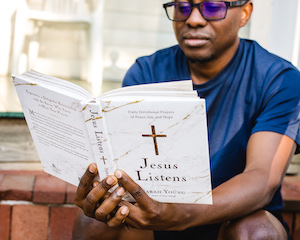
For only $24 a month, you can provide three people with Bibles each and every month. When you sign up to provide three Bibles with a monthly gift of $24, as a thank you, Cru will provide meals to 12 hungry individuals through their humanitarian aid ministry. Plus, you’ll receive a free copy of our Jesus Listens devotional. Simply text “Calling” to 71326 to help today.
Imagine just how much this gift could change someone’s life. So text “Calling” to 71326 to help now or visit www.give.cru.org. Messaging and data rates may apply. Available to U.S. Addresses only.
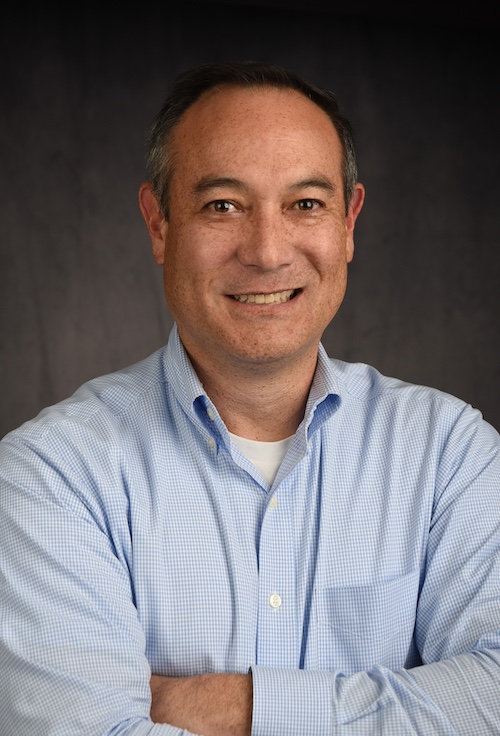
Our next guest is John Inazu, a law professor at Washington University. John shares with us the insights he’s gained from his years in the legal world, focusing on how we can engage in healthy disagreements, foster understanding with those around us, and utilize prayer to gain clarity and guidance.
John Inazu: My name is John Inazu, and I’m a law professor at Washington University in St. Louis. I teach both law students and undergraduates criminal law, First Amendment, law and religion, and I write books.
It Matters How You View Differences
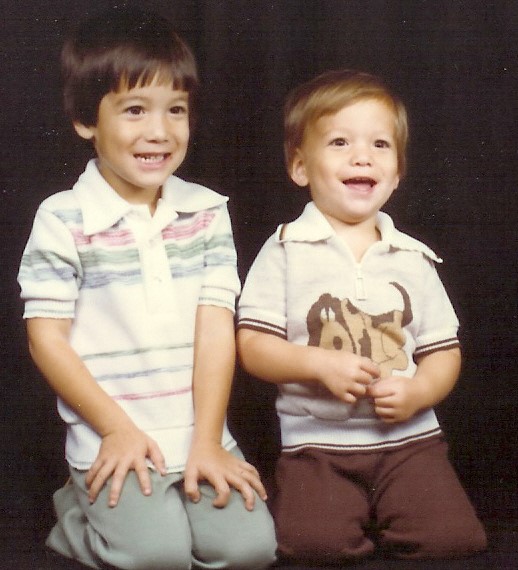
I grew up in a military family, so we moved every couple of years. I think I moved ten times before college, and I think part of growing up with so much moving instilled in me the significance of working on friendships and working across differences, because I had really no other choice. And after high school, I went to college on an ROTC scholarship, and the great thing was they paid for college. And the hard thing was they required me to major in engineering, and it was a lot of math and science and a lot of classes that probably weren’t my sweet spot, and then I went to law school.
But I think that the contrast and the complement of engineering to law has been helpful for how I think about disagreement. With engineering, everything is black and white. You do the math, you do the physics, and either you’re right or you’re wrong. And at the end of the day, what you do matters to whether buildings stand up or flood water patterns hurt people or not. And so that matters a lot. But with law, everything is gray and it’s not so black and white, and it’s harder to know exactly what the answer is. And so this contrast between the certainty and clarity of math and physics and the ambiguity of law has really helped me see differently about the significance of disagreement and also modes of argument and persuasion.
I actually think as human beings, we have a lot of common ground with each other, and some of it is pretty low-hanging fruit. So we all have to eat and sleep, and we all have joy and sorrow. And when we pause and take the time to discover that an adversary or a political opponent or someone we don’t know or even like very well does all of these things too, that naturally bridges some common ground between us. And I think another way in which we have common ground is most people do care about some common sense sorts of things. You want kids to be protected, you want areas of your town to be safe, and you want fill in the blank—you want a stronger economy, whatever it is. And so people care about shared interests, it doesn’t mean we agree about ultimate things or even what the common good should be, but I think when we start with common ground and the idea that just living and being in the world puts us into a proximity and understanding with lots of people, that’s not a bad place to start.
It’s certainly true that the best kinds of hard conversations will show empathy in both directions, but there will be times when you encounter someone who’s not interested in empathy or charity, who’s just trying to make their point or shut you down, and I think those situations require a bit of judgment and wisdom. Sometimes it’s best just not to engage, but I think especially for Christians, often we’re called to take some hits, to lean in on the fruits of the spirit, and to ask for patience and understanding. And I think the way we respond to hostility or adversaries, even if we don’t win the point, we might actually still model a kind of relationship or model the fruits of the spirit in a way that will make that other person pause. And maybe the person coming at us without any empathy is actually struggling not with our substantive disagreement, but might have something else going on in life or be experiencing a real struggle or trauma. And if we can start with the reminder that this is a human being, and that we have some pretty deep resources to engage with compassion and with patience and with love, then that can go a long way to modeling who we’re supposed to be in the world, almost regardless of the disagreement.
“I think the way we respond to hostility or adversaries, even if we don’t win the point, we might actually still model a kind of relationship or model the fruits of the spirit in a way that will make that other person pause.” – John Inazu
Setting the Scene for Hard Conversations
I think in many cases we can have the hard conversations, but we need to discern when, why, and how to have them. And this relates somewhat to our own emotional bandwidth or abilities or capacities, but it’s not always the right thing in a relationship to jump into a heart issue, unless you’ve built a basis of trust and a sense of belonging. People want to know, Do you care about me as a person? They don’t want to hear your arguments or your moral outrage unless you’re actually having a place in their life. And so I think doing the relational work with other people is a way to set the groundwork for hard conversations.
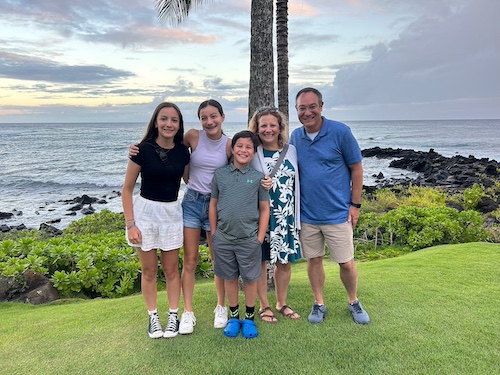
Now, it’s a lot harder when it comes to family, because you already have the relational groundwork. And yet family discussions across difference can be some of the hardest. And so one of the things I suggest to people is if you’re not experienced about having these conversations, then don’t start with family. Start with some friends, try it out. Get some practice before you delve into the family discussions, because there’s something about family. They know us so well, there’s so much shared ground that the emotional dimensions of disagreement can get much harder. And I’ve experienced this in my own life.
We need to be with other people and there are ways in which our online engagement or our text messages connect us to people, but it’s not the full kind of engagement that we’re created for.
We need to be around them to see their body language and their facial cues, and how they respond and signal all kinds of complex emotions, especially when it comes to our disagreements or trying to sort out differences between us. That kind of in-person engagement is very hard to replicate in a shortcut, online way. And so the more we push for these relationships—and then I would say even better than that is when you can carve out the space for these in-person relationships that meet over different periods of time, so you have a hard conversation, but you build in some trust and some expectation that you’re going to come back for another part of this conversation, that you’re going to give each other space to think and pray and discern a bit and then come back. And then this relationship of trust, ask more questions—that’s when the real work happens. It doesn’t happen in soundbites. It doesn’t happen in quick interactions, but it happens. And I think we are formed by the people around us most deeply when we give them permission and find the time to sit with conversation and listen and pause.
“I think we are formed by the people around us most deeply when we give them permission and find the time to sit with conversation and listen and pause.” – John Inazu
A Prayerful Attitude Equips You for Better Understanding
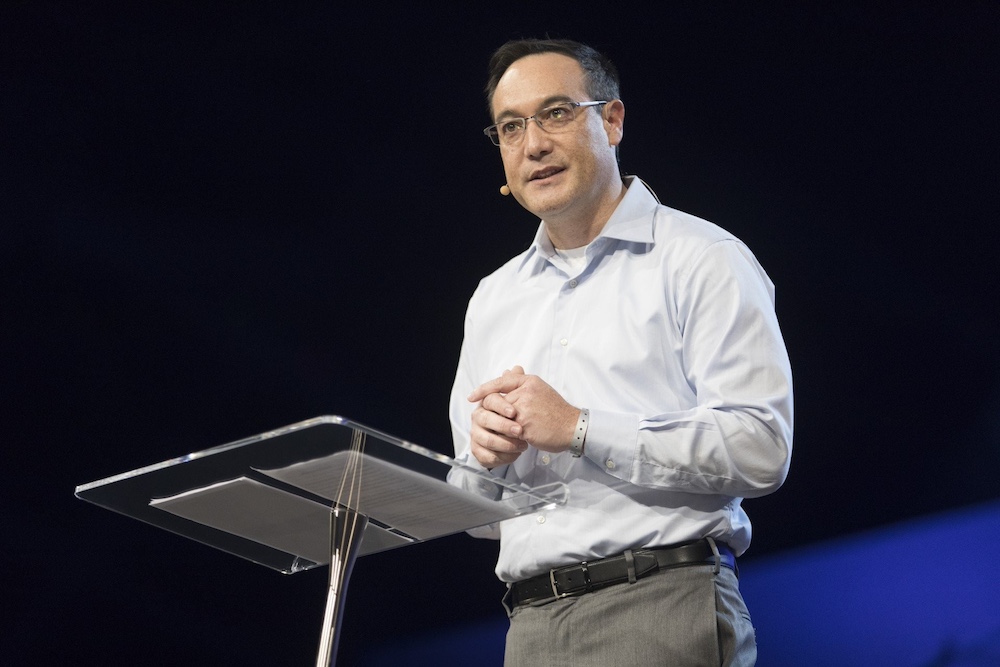
As a starting point, we have to have regular engagement with the truth that we know and proclaim the truth of Scripture and the prayers that connect us to God. And I find in my own life, sometimes it is the written prayers or reflections that can help channel my thoughts and focus and allow me to remember right out of the gates that this is what reality is—this is what matters. And pay attention to this over the noise that’s going to come from the busy days that we have and the ways that we engage. And I think if we don’t have that on a very regular basis, it’s going to be far too easy to follow the noise and the distractions.
There will be times in life and roles that you have where you’re not equipped yet to jump into that hard conversation. Prayer has to be the anchor of this, that you wake up and you thank God for the part that you get to play in His story, and then you ask for more of the fruits of the spirit. I think prayer toward discernment and prayer toward cultivating the habits and practices that we need to do this well is the lifeline that we can’t do without.
“There will be times in life and roles that you have where you’re not equipped yet to jump into that hard conversation. Prayer has to be the anchor of this, that you wake up and you thank God for the part that you get to play in His story, and then you ask for more of the fruits of the spirit.” – John Inazu
I’ll be reading a passage from Jesus Listens, May 6th:
My loving Lord,
The world I inhabit is constantly in flux—I can find no solid ground here. So I desperately need to stay aware of You as I go about my day. I know I won’t be able to do this perfectly, but I can return to You time after time, praying: “Jesus, keep me aware of Your loving Presence.” I like to let this prayer continually echo in my heart and mind—drawing me back to You when my thoughts start to wander away.
I’ve found that the more of You I have in my life through living close to You, the more joyful I am. This blesses not only me but others—as Your Joy flows through me to them.
In Your blessed Name, Jesus,
Amen
Narrator: To learn more about John Inazu, check out his newest book, Learning to Disagree, wherever you buy books.
If you’d like to hear more stories about the beauty of leaning on God and each other, check out our interview with Jordan Davis.
Next week: Molly Stillman
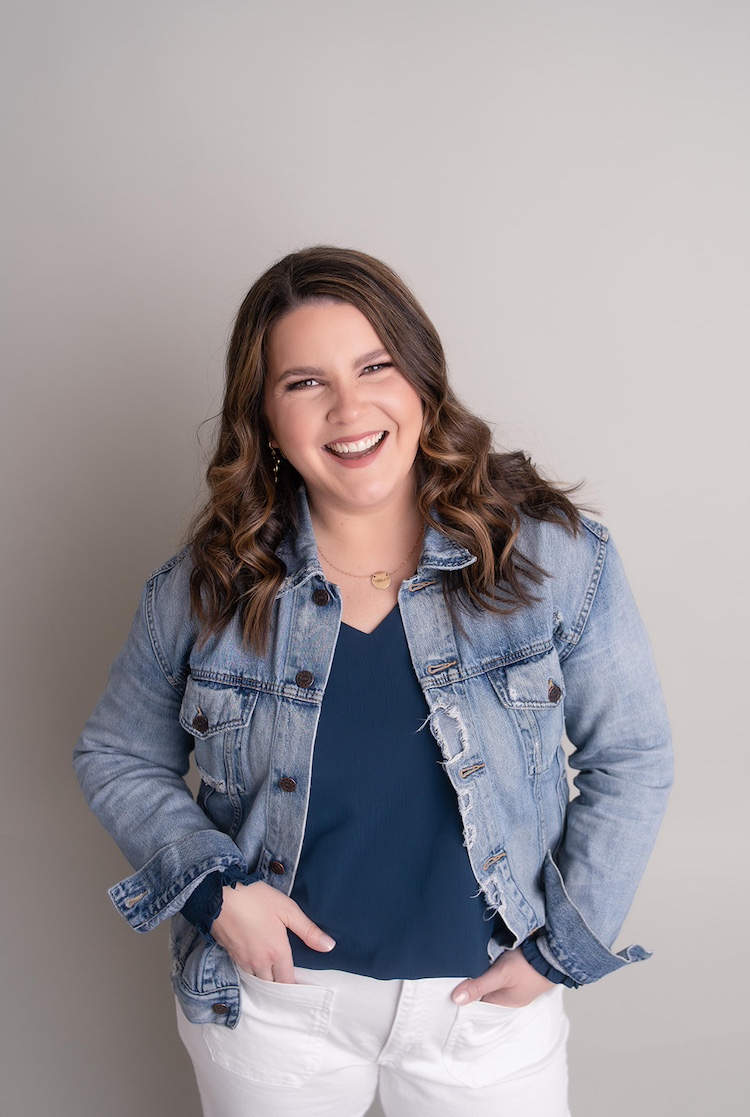
Next time on the Jesus Calling Podcast, we’ll hear from podcast host, speaker, and blogger Molly Stillman, who shares how laughter got her through some of the tough times in her life.
Molly Stillman: Laughter does the heart good, like medicine. There’s actually scientific evidence that shows that laughter is healing to the body. I love to picture Jesus making raspberries or things like that. I love to picture Jesus doing that, and God has a sense of humor. He gave us the gift of laughter.
